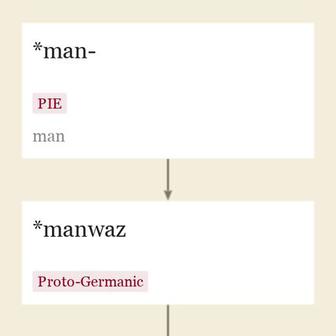freeman n.
Old English freoman "
Entries linking to freeman
Old English freo "
The sense evolution from "
Meaning "
Free even to the definition of freedom, "without any hindrance that does not arise out of his own constitution." [Emerson, "The American Scholar," 1837]
Free lunch, originally offered in bars to draw in customers, by 1850, American English. Free pass on railways, etc., attested by 1850. Free speech in Britain was used of a privilege in Parliament since the time of Henry VIII. In U.S., in reference to a civil right to expression, it became a prominent phrase in the debates over the Gag Rule (1836). Free enterprise recorded from 1832; free trade is from 1823; free market from 1630s. Free will is from early 13c. Free school is from late 15c. Free association in psychology is from 1899. Free love "

"
Sometimes connected to root *men- (1) "
Specific sense of "
Man also was in Old English as an indefinite pronoun, "
As "
Man-about-town "
So I am as he that seythe, 'Come hyddr John, my man.' [1473]
MANTRAP, a woman's commodity. [Grose, "Dictionary of the Vulgar Tongue," London, 1785]
At the kinges court, my brother, Ech man for himself. [Chaucer, "Knight's Tale," c. 1386]
"
updated on January 05, 2015